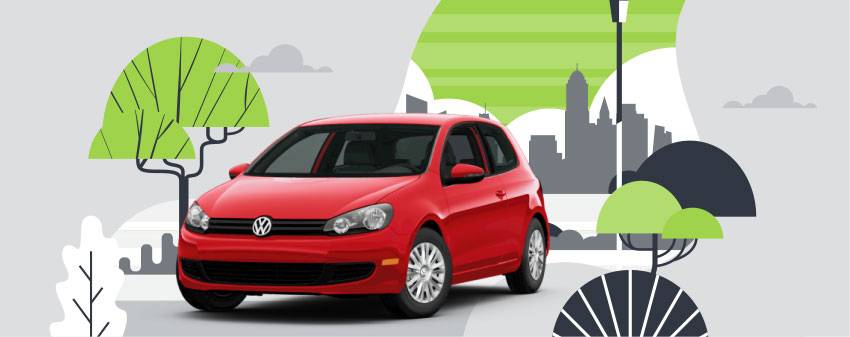Will a vehicle pass an inspection with a cracked windshield?
If you’re planning to purchase a pre-owned vehicle, you might expect the odd detail to be less than perfect – but what about a cracked windscreen?
Here, we’ll look at the cracked glass on vehicles in a little more detail – and explain what will happen if you book a pre-purchase inspection when the car’s windscreen is damaged.
Is damaged glass a problem?
As a driver, it’s absolutely vital that you have a clear and unimpeded view of the road ahead – and your windscreen is a key part of this.
If there’s a crack, scratch, or stone chip in your windscreen, you might consider it to be just a cosmetic issue – but in actual fact, even if it doesn’t cause you problems when you’re driving in favourable conditions, it could be a different story when conditions change.
Even minor damage to a windscreen can mean your wipers don’t work as they should – and cracks and chips can cause a distracting glare from sunlight, streetlights and other vehicles.
Driving with damaged glass be a big risk – and, depending on the type of damage, it can be illegal or cause your car to fail its MOT.
Is driving with a damaged windscreen against the law?
Whether or not a cracked windscreen will make your car illegal to drive depends on how seriously damaged the glass is.
If you’re caught driving with a chipped or cracked windscreen and it’s decided that the damage is obstructing the driver’s view – then you could face a fine and 3 points on your licence. This could become a more serious driving offence if you’ve been involved in an accident and it’s decided that the damaged windscreen contributed to the accident.
Quite simply, it’s not worth driving with any kind of damage to your windscreen.
Will a damaged windscreen fail an MOT?
There’s often confusion around whether or not damaged glass will mean your car fails its MOT.
Unfortunately, there’s no simple ‘yes’ or ‘no’ answer – but our independent inspectors will be able to tell you if it’s likely to be the case, and they’ll provide photographs of the damage so you can also judge for yourself.
A car will fail its MOT because of damaged glass if:
- There’s damage that is 40mm or wider, anywhere on your windscreen
- There’s damage 10mm or wider in the driver’s immediate line of sight
It’s often ‘line of sight’ that people are not 100% clear about. According to MOT testing standards, this is an area that’s 290mm wide, centred on the steering wheel, and running from the top to the bottom of the windscreen.
Will a damaged windscreen pass an inspection?
When you book a pre-purchase vehicle inspection, you shouldn’t expect a car to come back as either a ‘pass’ or a ‘fail’ – instead, the report that’s produced is intended to give you as much information about the car as possible, so you can decide for yourself.
Don’t worry though, our experienced inspectors will see any damage on the windscreen – and they’ll make sure you’re aware of it. Each part of the car that’s inspected is graded as either ‘OK’ (green), Warning (amber), Danger (red), or N/A (grey).
Depending on how damaged the windscreen is, it will be marked as either a Warning or a Danger point on the report. In addition to this, damage to the windscreen will be photographed, so you’re not relying on words alone to assess the situation.
Should you buy a car with a damaged windscreen?
The report you receive after your inspection isn’t intended to tell you whether or not to buy or avoid a vehicle; instead, it’s there to give you all the information you need to decide for yourself.
If you’re hoping to buy a car with no problems, then a cracked or chipped windscreen might be enough to put you off. Then again, if the car is a bargain and you’re happy to spend a little money putting issues right, a slightly damaged screen might not be an issue.
Either way, with visibility of the road at stake, a pre-purchase vehicle inspection is a great way to decide whether or not the glass in the car you’re looking at has got a clean bill of health.


